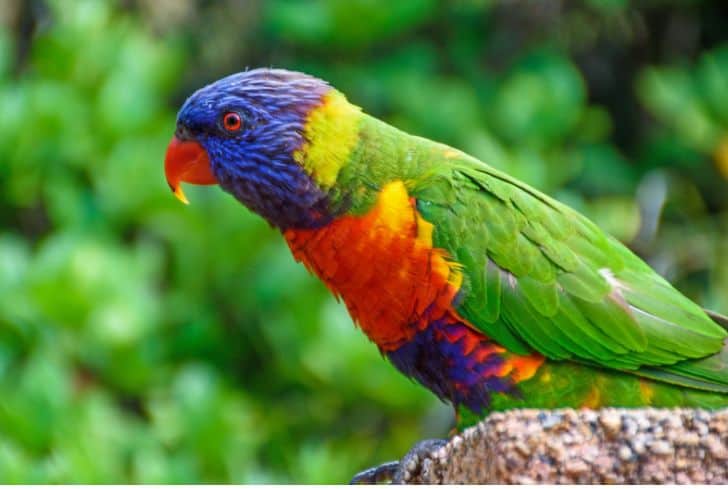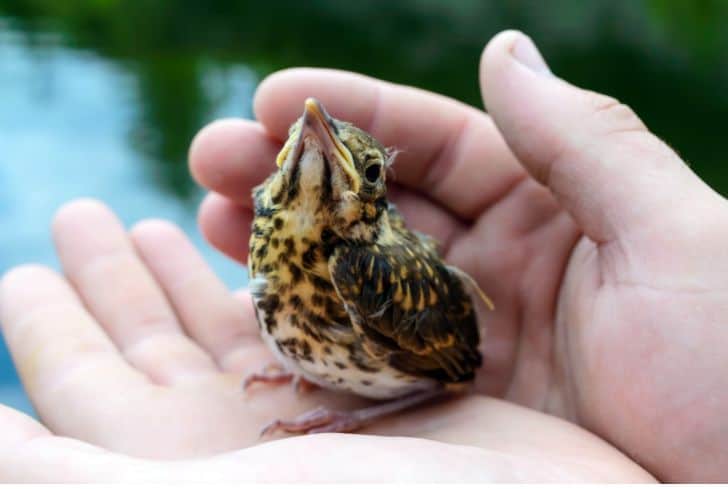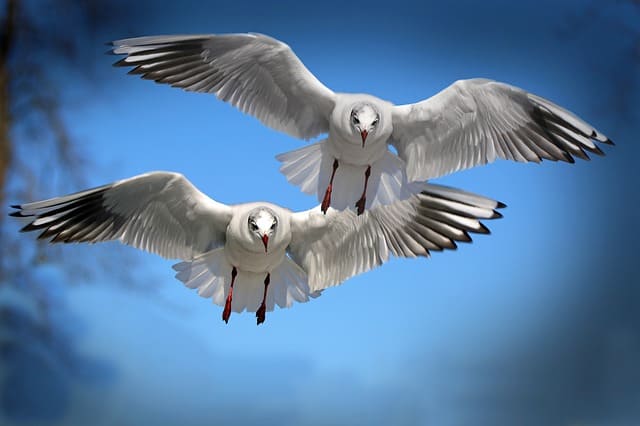Birds suffer from the loss of habitats and other factors that affect their migration and reproduction patterns, leading to a decline in their numbers and even driving some to extinction. In order to protect and reduce the death of birds, there are various actions people can take to conserve birds and to at least give them a chance to survive.
The most appropriate and necessary actions can solve this problem on two fronts. Foremost is protecting the birds and their numbers, and second is protecting their habitats.
With enough people and diligence in implementation, we might even be able to reverse the current dwindling population of birds and get those that are endangered off the list.
Here are the top 25 simple and amazing ways to conserve and protect birds.
Birds are the most popular group in the animal kingdom. We feed them and tame them and think we know them. And yet they inhabit a world which is really rather mysterious.
~ David Attenborough
25 Ultimate Ways To Conserve and Protect Birds
Some of the clever ways we can do to conserve and protect our birds include but are not limited to the following:
1. Mark Windows
Birds tend to hit windows because they cannot see them. The level of impact is sometimes so heavy that some end up dead.
Birds may sometimes encounter life-ending injuries such as broken wings and necks. Marking windows is a simple yet effective solution. This is best served using decals and frosted glass, allowing the birds to avoid the glass.
2. Keep the Pets Indoors
Cats and other house pets like hunting smaller animals, especially birds. This harms their numbers, which can be devastating in the case of endangered species. The problem can be contained by ensuring that the pets remain indoors most of the time when possible.
3. Use Natural Pest Control
Many bird species predate on smaller rodents and animals that feed on grain and cereals found in the open, with some birds also eating these grains themselves. Unfortunately, these food sources can be disrupted when chemicals are used for pest control.
Chemical pesticides such as Dichlorodiphenyltrichloroethane (DDT), while very effective as pesticides, do not organically decompose quickly and can be passed from pest to bird.
This means that any birds that feed off of pests or seeds that have come into contact with this chemical slowly accumulate fatal amounts of the chemical within their bloodstream. However, using natural pest control measures ensures that this does not happen.
4. Vote Against the Use of Chemical Pesticides
Given the concerns mentioned earlier, it becomes crucial for people to advocate for legislation that prohibits farmers from using such chemicals.
This would prevent the import of harmful substances into countries and discourage their use altogether. By doing so, we can safeguard birds from harm and protect their food sources.
5. Do Not Purchase Birds Illegally

The endangered bird species are numerous, and they all attract high prices on the black market due to their rarity. By purchasing these birds as pets, one bolsters the market and incentivizes poachers to continue to decimate the already fragile populations.
Hence, by not participating in the market, the poachers are starved of profits, and the incentive to poach the birds is lost.
6. Reduce Your Carbon Footprint (Global Warming Increases Pest Numbers that Kill Birds)
Parasites are part of the reason birds suffer and their dwindling numbers. Attacks by ticks and mites can lead to weakened bird populations. This is mostly due to a rise in the number of parasites in the wild.
Their increase can be traced to the rising global temperatures that make for shorter winters with higher average temperatures. This means that more insects survive the winter cycle each season. To combat this, we should reduce greenhouse gas emissions.
7. Join Conservation Groups
Conservation groups actively participate in conservation attempts to protect endangered species. These groups are especially beneficial as they can pull in larger funds from donors.
They also practice better coordination tactics that have more of an impact on bird conservation efforts.
8. Place Trash in Appropriate Bins
Birds tend to be curious about the garbage that people produce. Dumping things in the open usually leads to birds attempting to eat whatever has been dumped, sometimes including materials such as paper and shiny plastic beads.
This could end up harming the birds or causing diseases and infections. It also places the birds at risk of being attacked by other animals as they try to pick out food. Putting trash in inappropriate places lessens the chances of these problems.
9. Learn and Obey the Hunting Laws of Your Region
Hunting laws work towards maintaining a balance between hunting and the protection of animal species.
Hunting without knowledge of what species the government is keen on protecting could mean that you are damaging a program that’s put in place to replenish bird populations.
Hence, one should understand what they can hunt for when acquiring their permit to avoid such scenarios.
10. Slow Down on the Road
Several bird deaths occur when they run into vehicles while flying low over the tarmac. While it is hard to avoid, there is a chance that more birds could be saved if more individuals slowed down around country regions, especially if flocks of birds had been sighted close by.
11. Avoid Plastic Products
Many birds mistake the plastic waste for food and try to consume it. This is bad for them as the materials are indigestible and can cause digestion complications to the birds and sometimes even death.
This places the responsibility of protecting the birds on human beings. But by disposing waste properly in covered bins and avoiding plastics, there remains a very slim chance that plastic will lead to the death of birds.
12. Share Your Love of Birds
By sharing your love of birds, the conservationist will increase awareness of the plight of endangered species of birds.
Plus, sharing interests increases the chances of increased donations and participation by the general public. This helps create a bigger impact on the conservation effort.
13. Do Not Attempt to Handle Fledglings

Fledglings are birds that have not yet left the nest. They are very sensitive to many external factors, including your body temperature. Plus, by handling the nestlings, you might inadvertently transmit bacteria that’s not harmful to you but very deadly to their delicate health.
14. Plant Native species
Native species of plants provide a conducive environment for endangered species to breed and increase in population.
This is particularly important because those birds are adapted to the indigenous plant types that grow in their areas. The plants also host other types of animals and insects, which form important ecosystems and increase the biodiversity of the region.
15. Create Small Bird Habitats
Most birds have lost their habitat due to human expansion into what was formerly forest land used by birds for nesting. Individuals can put up structures that act as small habitats within their compounds.
These may include bird feeders and baths, which act to attract endangered species and serve to provide them with food, water, and shelter. This increases the species’ population in the region and incentivizes more birds to settle to breed with the other birds in the region.
16. Change Farming Techniques
Modern farming techniques have been very destructive to the endangered birds as the use of chemicals and the destruction of forest land destroy both food and habitat for the birds.
Changing farming techniques to use less chemical pesticides and opting for organic farming as opposed to the purely commercial option will increase the birds’ food options and provide more regions for habitat creation.
17. Buy Organically Grown Produce
Organic farming techniques do not use industrial chemical products to fertilize crops or combat harmful pests. This means there is little chemical contamination of the region, which increases insect numbers and ensures that fruit and grain do not adversely affect birds.
By supporting organic farmers by buying organic produce, we support the farming choice that provides a more conducive environment for the survival of birds.
18. Recycle Trash
As previously stated, human trash not only harms the birds but also degrades their habitat. Plastic and glass items can harm birds by choking or injuring them, thereby causing infections or trapping them, hindering their movement.
The best solution is to ensure that all trash is recycled to protect the birds from getting harmed.
19. Raise Awareness on Proper Waste Management (As It Concerns Waterways)
Aquatic birds are especially at risk regarding waste management, especially considering oil pollution, sewage, and industrial waste. The waste dumped in the water, sometimes without treatment, destroys food sources for the birds, such as fish, and reduces marine life diversity.
The waste also possibly increases the nutrient levels for microbes in the water, leading to algal bloom growth. Algal blooms are toxic and can lead to the death of thousands of fish, poisoning the birds if they consume the dead or poisoned fish.
20. Reduce Interaction With Birds

Birds are very sensitive to human action. Even when they live near humans, attempts to approach nests to force them to fly away should be avoided. For some birds, this means expending much energy to leave the nest and perch on other trees.
This constant stress and use of physical strength to move could lead to overworking the bird. A lifestyle of constant movement caused by human interference also makes it difficult for birds to find food, which can starve the young.
21. Protect Existing Habitats
One of the best options is to protect the existing habitats for endangered species by exempting them from human commercial activities such as logging and deforestation.
This could be done by proposing to the government and local communities to protect endangered species habitats.
22. Visit National Parks
Visiting specially designated habitats provides awareness of the plight of endangered species and provides the government with funds from entrance fees that go into protecting the national parks. This ensures that the species’ habitats remain protected, protecting the birds nesting in the area.
23. Make Donations and Volunteer at Conservation Parks
Another way to protect endangered species is to get involved in conservation projects by volunteering services or making cash donations.
Your time can also be used for non-specialized tasks such as helping in trash collection while the money goes into the funds required to maintain the parks. This helps secure the habitats that provide homes to thousands of birds.
24. Limit Energy Usage
By reducing energy use, a person can help in conserving birds. Reducing the amount of energy minimizes carbon emissions. This, in turn, reduces the occurrence of extreme weather events that can wipe out critical ecosystems necessary for a bird’s survival.
25. Enjoy Nature
The final action that goes towards protecting endangered species of birds is enjoying nature. Being active in bird watching and nature walks ensures a constant appreciation for birds’ beauty.
This sort of appreciation can be shared among people and continue to help raise awareness of the birds’ plight, thus gathering help in any form that would go towards protecting all the endangered birds in your region.
References:
https://inhabitat.com/9-things-you-can-do-to-help-wild-birds-this-summer/






